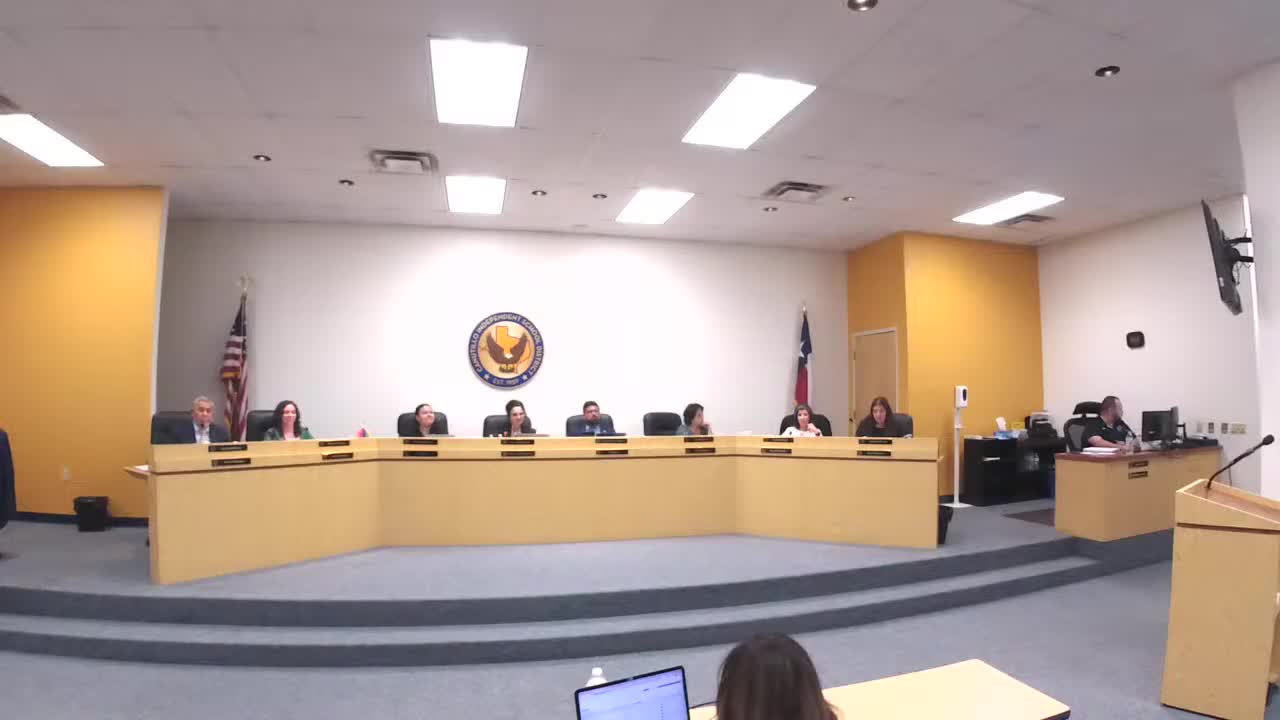Canutillo ISD drops to a B rating under FIRST as cash-on-hand and operating deficit cited
Get AI-powered insights, summaries, and transcripts
Subscribe
Summary
Canutillo ISD received a B rating on the Financial Integrity Rating System of Texas for FY24 data, a decline from prior superior ratings, driven primarily by low days of cash-on-hand and an operating deficit, finance staff told trustees.
District finance staff presented the Financial Integrity Rating System of Texas (FIRST) results (FY25 rating based on FY24 data) and reported a B ("above standard") overall rating after a decade of superior ratings. The presenter said three indicators were the principal drivers of point losses.
First, indicator 7 (solvency) earned 4 of 10 points because the district had 49 days of cash and current investments in the general fund; the threshold for full points is 90 days. Second, indicator 8 (current assets to current liabilities) returned 8 of 10 points as the ratio reported was 2.8 (the full-points threshold is 3.0). Third, and most consequential, indicator 9 is a pass/fail measure asking whether general fund revenues equaled or exceeded expenditures (including facilities acquisition/construction). Staff said the district experienced a general-fund deficit in FY24; because the district also had fewer than 60 days of cash-on-hand, it received zero points on that indicator, costing the district significant points.
Finance staff explained the scoring bands (90——100 = A; 80——89 = B; 70——79 = C) and noted the districts long run of superior ratings. Board members asked for line-item clarification of administrative-cost coding that affects indicator 13 (administrative cost ratio), and finance staff explained that some required expenses (legal, audit and closing costs) are function-coded to administration which can raise that ratio in years with unusual items. The presenter said the district is seeing fund-balance pressure and that preliminary FY25 projections showed 52 days of fund balance but that cash-on-hand was likely lower; the FY25 audit completion timeline had been extended by the state auditor to February 27, 2026, and staff said they would bring the audited numbers to the board when the audit closed.
Trustees debated whether the district should "bank" future land-sale proceeds for long-term reserves versus using those proceeds to close current-year shortfalls. Finance staff cautioned that formally committing sale proceeds now to a dedicated reserve would remove flexibility during a multi-year operating deficit and could be counterproductive for the FIRST calculation. Administrators underscored the need to restore recurring revenue/expenditure balance and rebuild days cash on hand to regain a superior rating.
The presentation and discussion were informational; the transcript does not record a separate board motion changing budget or fiscal policy at this meeting.
